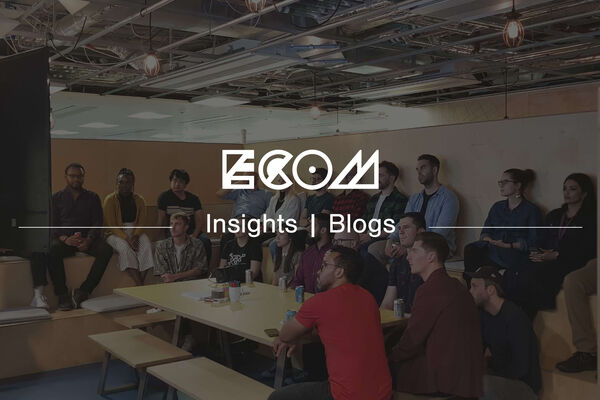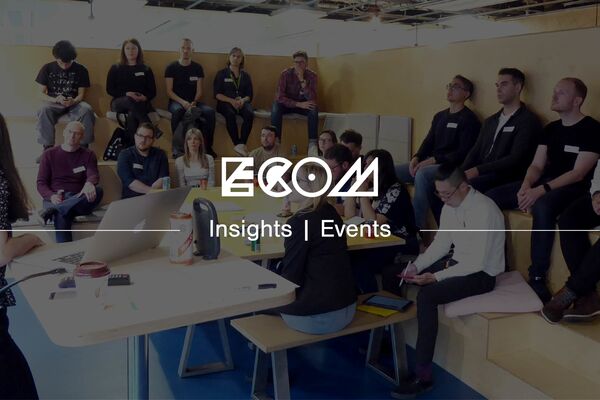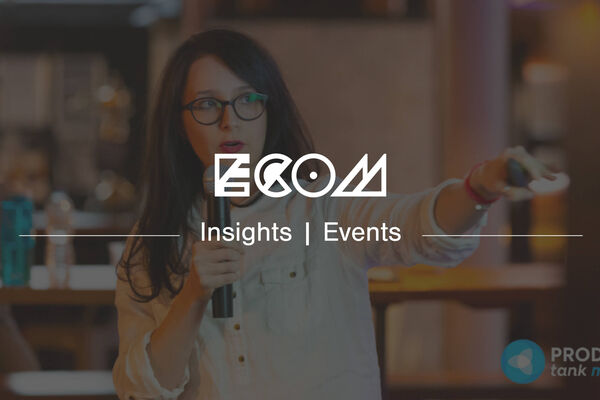Talent Sessions Manchester
February 28, 2019, 12:00am - 12:00am
Written by Rob Sugden.
We hosted an incredibly insightful Talent Sessions last week, we were lucky enough to be joined by Theo Smith. Theo is a speaker and advocate on neurodiversity. For those of you who don’t know what Neurodiversity is (and I didn’t really understand it until the session), it’s the concept where neurological differences are to be recognized and respected as any other human variation. These differences can include those labelled as Dyspraxia, Dyslexia, Attention Deficit Hyperactivity Disorder, Dyscalculia, Autistic Spectrum, Tourette Syndrome, and others. To put it simply “Diversity of Thought”
Did you miss? Addressing the tech industry's diversity problem
The session was titled “A dolphin in a rat race.” - They’re both intelligent creatures, but if you’re assessing the intelligence of a dolphin in the same way you assess that of a rat, the dolphin will always fall short. It’s the same with people.
Theo highlighted issues around neurodiversity in a relatable way, issues that are regularly overlooked, due to lack of knowledge or understanding.
Many of the attendees have family and friends that are neurodivergent, it felt like a “personal topic” to members of the group. Theo consolidated this with “everybody knows someone. Even people who are in the highest positions in the workplace, after a simple conversation you’ll learn that they too are affected by neurodivergence.”
It’s clear why this issue should be addressed, firstly to ensure everyone is given equal opportunity and that we have diverse and inclusive work environments but from a commercial perspective it’s shown that diverse organisations are more profitable and with the continual struggle to hire top talent especially in technical roles are we alienating potential great hires?
As talent acquisition, one of the biggest opportunities we have to improve neurodiversity within our organisations is to ensure an inclusive selection process. It was interesting to hear that “we as human categorise in less than 150 milliseconds.” The group was taken aback at how little amount of time that really is. Theo continued with the fact that “within 30 minutes, you’ve made lasting judgements about someone’s character.” But that begs the question, are we missing out on great talent by judging them too quickly?
We talked about the interview environment, Theo was able to give some great examples of how this can affect the performance of neurodivergent applicants.
Often applicants that are on the autistic spectrum may have trouble focusing in a busy or distracting environment. Theo suggests variables that may affect the quality of the interview process, small changes such as moving seating position to ensure the candidate is facing away from an open corridor or window which can affect their ability to concentrate on questions.
Consideration should be given surrounding the circumstances leading up to the interview. Does the candidate need time to familiarise themselves with their environment? Have they spent the last thirty minutes on packed public transport where they feel uncomfortable? Do they need a drink of water? Taking a moment to ask if they’re comfortable with their environment and giving them ten minutes to settle will help candidates perform to the best of their ability.
Theo also highlighted the need to provide proper guidance to line managers conducting interviews.
Are they aware of neurodivergent candidates and how they may come across? They may be uncomfortable holding eye contact, give a weak handshake, or generally come across as unconfident. Historically these traits have been frowned upon and competent candidates who could excel in the role dismissed. It’s our responsibility to ensure managers are aware of how neurodivergent candidates may come across to help reduce any conscious or unconscious bias.
Another topic of discussion was technical assessment, with the majority of attendees all responsible for hiring software developers, this resonated with everyone. While assessing a developer's technical skills is important it’s essential that they have the best opportunity to shine and show what they can do. Neurodivergent candidates may struggle when put on the spot or asked to do whiteboard exercises so giving them the choice of how and where they’re assessed (e.g. can they do an online assessment from home) will ensure everyone has an equal chance of succeeding.
It was a great talk with lots to think about, we’re not going to change the world overnight. But there are small changes that we all can implement now, that will make a difference to someone's life and also benefit the organisations we work for. To quote Theo “the answer lies in this room”.
Thanks to everyone that came and thanks to Theo for a great session, see you next time! Don't miss the next Talent Sessions, join our page here!


